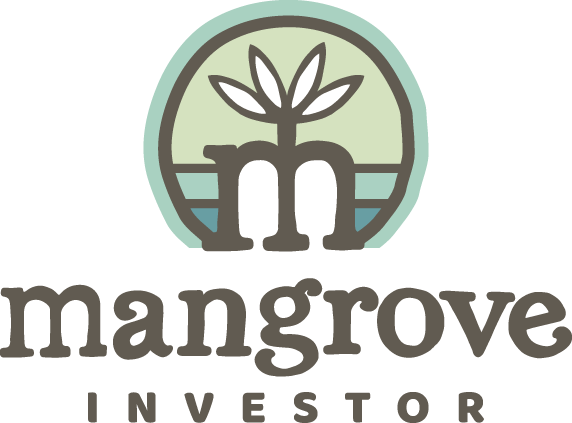

We Love the Haters
It’s no secret: there are haters out there.
Environmental, social, and governance (ESG) investing is a hot-button topic.
In May, one of the most influential businesspeople in the world said that “ESG is a scam.”
When we launched Mangrove Investor, we heard from one former subscriber that sustainable investing was just a fad – not worth their time.
One writer I knew used to love pointing out that many green startups were still attached to traditional power grids. They were burning fossil fuels just like the rest of us.
And here’s the truth: We listen to the haters.
I’ll tell you why in a minute, but first I want to dive into some of these claims.
The “ESG is a scam” quote came from the Twitter account of Elon Musk. Musk is the CEO of Tesla (TSLA), a company that makes electric vehicles.
He brought up a good point in the rest of that tweet that I want to talk about, though:
It’s true: Exxon Mobil is one of the top ten companies listed on the S&P 500 ESG Index. Meanwhile, TSLA was booted from the index shortly before Musk wrote this tweet.
The truth is that most ESG funds and indexes are not all they’re cracked up to be. S&P isn’t the only company to list Exxon Mobil in their “green” funds. That’s one of the main reasons we stay away from funds like this.
My colleague Matt Badiali actually wrote about this in December. ESG funds are notorious for misrepresenting their holdings. While TSLA being taken off the S&P 500 ESG Index may have been a hypocritical move, it’s not far off how these indexes seem to normally operate.
We appreciate the rise of exchange-traded funds over the past few decades. They give everyday investors one-click ways to diversify and manage their portfolios. But when you look under the hood, you see “greenwashing at its laziest,” as Matt says.
So, the S&P 500 ESG Index has major problems. Does that mean that ESG investing as a whole is bad?
Let’s explore that a bit further.
Like with any kind of investing, the real winners are investors with a long view. The stock market can pay for your kid’s college tuition or a house down the line. But you’re not going to get there with fast trades in hot stocks.
Is ESG investing a fad?
Probably not. By definition, investing for the good of the planet means investing for the long term. There are some fly-by-night tech companies that try to combine the idea of green tech and cryptocurrency or something like that (I wrote about this last week), but these aren’t likely to be the winners down the line.
The winners will be companies that are innovating. They’ll be the companies that are using real science and engineering to focus on the world’s problems. They’ll be the ones that no one is looking at.
That doesn’t sound like a fad to us, but we will let our readers decide that one.
Alright, but how about those companies with big promises who are still using fossil fuels or dirty manufacturing?
This is where the real power of investing comes in. As consumers, we vote with our dollars. As everyday stock holders, we do the same thing. When we find a company that we want to invest in that isn’t living up to our standards, we can push it to do better. Or even more exciting, we can invest in its competitors who are doing it well. And if that pushes every company out there to make these changes, that’s even more companies that we can put our money into.
That means higher investment returns for us.
It’s not perfect yet, but the fact that we have the power to nudge the market in the right direction is at the core of our “do good while doing well” philosophy.
We aren’t going to pretend that the haters are out of their minds or flat out wrong. That’s just not our style.
The truth is that the haters can be valuable. They give us free risk assessment. They let us know new places that we need to focus our research. They let us know how we can make our ideas better.
The bottom line is that we believe in what we’re doing at Mangrove. We spend the time (the days or weeks that it takes) to dig into the companies we recommend and the research we share. We aren’t using arbitrary index companies’ ESG lists. We are doing the legwork to bring you the best of the best.
I suppose time will be the ultimate test. Good thing we’re invested for the long run.
– Annie Stevenson
Numbers To Know:
12.5% of the population, 46% of emissions related to transporting food
A study from Nature Food showed that high-income nations account for less than 15% of the global population, yet nearly half of the food-transport emissions can be traced to them. The report has a lot of fascinating numbers.
December 2023
Deadline for Canadian companies to deplete their single-use plastic products and complete their transition away from those products. The ban on manufacturing and importing goes into effect this year.
11,000 tons
Amount of waste the European Commission says that discarded and unused chargers produce. The chargers for things like phones, tablets, and laptops are causing a problem in the EU, and regulators want to put a stop to it.
What’s Going on In Sustainable Investing:
Greenwashing legal case: The SEC vs Vale
The SEC has brought a suit against Vale, a Brazilian mining company. They alleged that the company has misled investors on its green initiatives. Observers hope that this will put other greenwashing activity on notice.
UK banks wouldn’t survive climate stress
The Bank of England put British banks through a simulation of a climate disaster, and the banks did not come out well. The regulator recommends that insurers and bankers prepare today or face losses in the future.
Links We Like:
‘Marker of climate change’: Europe swelters in record-breaking June heatwave
Spain, France and other western European nations on Saturday sweltered under a blistering June heatwave that has sparked forest fires and concerns that such early summer blasts of hot weather will now become the norm. (France24)
State Plastic Bag Legislation Tracker
Does your state have legislation on plastic bags? Restrictions? Bans? Check the state-by-state lists here. (National Conference of State Legislatures)



